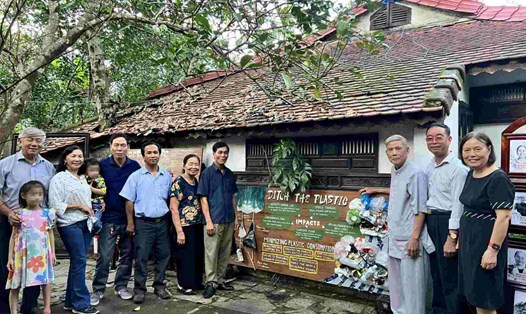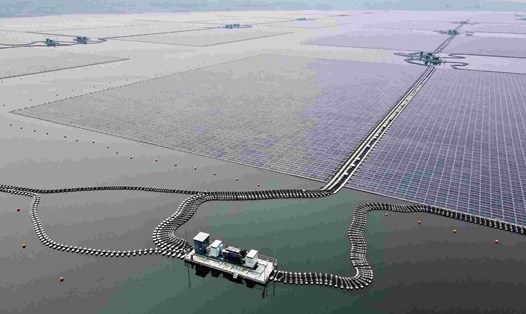Accordingly, 72% of Vietnamese consumers are willing to pay more for environmentally friendly products, showing a shift in their awareness and priorities.
According to a Nielsen survey, 60% of Vietnamese consumers trust the quality of these products and 55% are willing to change their shopping habits to support a green lifestyle. In response to this trend, many businesses have been transforming their business models, considering green consumption as an inevitable direction for sustainable development.
Support needed to increase competitiveness
Statistics show that currently in the national standards system, Vietnam has built about 750 standards towards promoting green growth, including: Group of standards on environmental quality, air quality, water quality, waste management, ISO 11041 organic agriculture standards... However, many businesses said that the biggest challenge they are facing in both domestic and export markets is green trade and this trend is creating certain barriers to production and business activities.
For many businesses, switching to green manufacturing processes requires large investments in technology, infrastructure and workforce training…
In addition, many businesses have not yet accessed knowledge and experience about green production processes, so they have difficulty in implementing and maintaining green production and business methods, aiming for sustainable brands.
Lessons from major countries
One of the “green” products that has gained a lot of attention in recent years is the electric car. The rapid growth of this type of vehicle around the world offers many lessons about how governments can support manufacturers in product development and competitiveness.
Governments in major countries such as China and the United States are playing a key role in developing the electric vehicle (EV) market and building the infrastructure to support the industry. China, instead of continuing to compete in the internal combustion engine vehicle sector, has chosen to focus on fully electric vehicles. Since 2001, the Chinese government has identified EVs as a key scientific project in the country's five-year economic strategy.
The Chinese government has spent more than 200 billion yuan (about $28 billion) on subsidies and tax incentives from 2009 to 2022 to promote the production and consumption of electric vehicles. These policies have allowed electric vehicle buyers to receive rebates of up to 60,000 yuan (over $8,000) before the subsidies expire in 2022. In 2023, a new support package worth 520 billion yuan (over $72 billion) was announced, extending tax incentives for electric vehicles until 2027.
In addition, the government also supports domestic EV manufacturers such as BYD and SAIC Motor through direct subsidies, helping these companies thrive.
Likewise, the United States is investing heavily in the electric vehicle industry to maintain global competitiveness and meet environmental goals. The U.S. government has announced a $50 million investment to increase domestic electric vehicle manufacturing capacity, with the goal of supporting small and medium-sized suppliers in converting their production lines to serve the electric vehicle supply chain. This is part of the $2 billion Domestic Automotive Manufacturing Conversion Grant program, which is aimed at helping states with a long history of the auto industry develop electric vehicle-related jobs.
The U.S. has established federal subsidies and partnerships to support domestic EV manufacturers. States like Michigan, Ohio, and Indiana have received millions of dollars to increase manufacturing capacity. Leading universities like Purdue, Michigan, and Illinois have also participated in technical assistance programs to help traditional automakers transition to electric vehicles.
In addition to supporting domestic companies, countries and alliances also impose their own tax rates on some imported "green" products to increase the competitiveness of domestic products. On May 12, the European Committee announced plans to impose a tax of up to 38.1% on electric vehicles imported from China. According to the European Union Commission, the reason for increasing the tax on Chinese electric vehicles is because these car companies are unfairly subsidized by the government, affecting European manufacturers.
Vietnam has an advantage as consumers increasingly prefer green products, and many businesses are gradually making a strong green transition, providing environmentally friendly, high-quality products, notably having their own national electric vehicle company. Encouraging and motivating the development of green products is essential.









